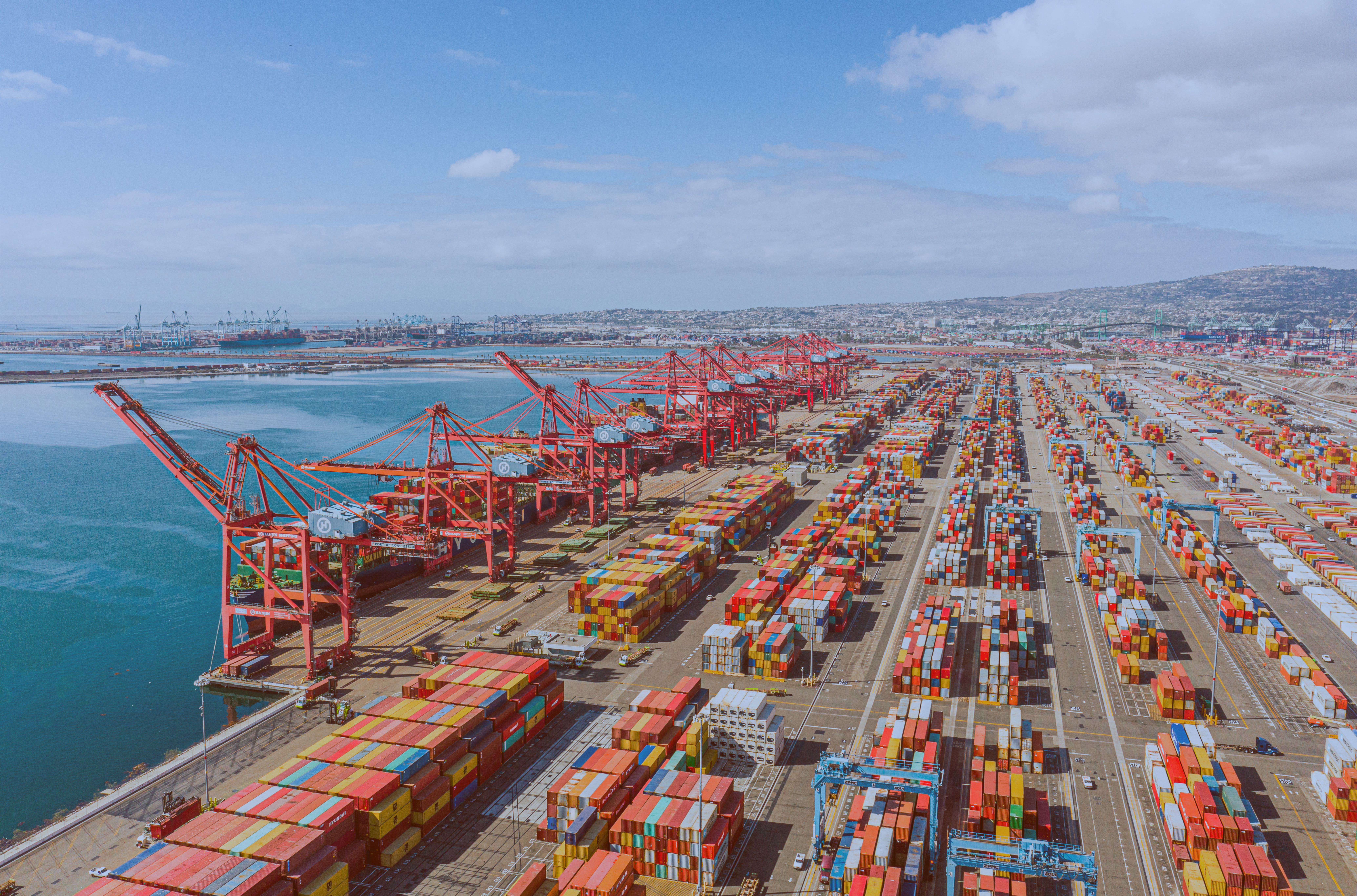Today, at the U.N. Climate Change Conference, the Ports of Singapore, Los Angeles and Long Beach announced a Partnership Strategy for a green and digital shipping corridor across the Pacific Ocean. This partnership builds on the prior commitments made by the United States and Singapore which was formalized by a Memorandum of Understanding by the ports during Singapore Maritime Week in April 2023.
Pacific Environment welcomes Ports of Singapore, Los Angeles, Long Beach Partnership plan, calls for increased ambition
DUBAI (December 6, 2023) — Today, at the U.N. Climate Change Conference, the Ports of Singapore, Los Angeles and Long Beach announced a Partnership Strategy for a green and digital shipping corridor across the Pacific Ocean. This partnership builds on the prior commitments made by the United States and Singapore which was formalized by a Memorandum of Understanding by the ports during Singapore Maritime Week in April 2023.
The ports and C40 Cities will work together to coordinate decarbonization efforts, build consensus on green shipping best practices, improve access to and adoption of technology and digital solutions and leverage networks to scale the uptake of zero-emission technologies, fuels and energy sources.
The strategy plan states that it supports the decarbonization of the maritime industry in line with the goals of the International Maritime Organization (IMO) and that it aims to achieve net-zero greenhouse gas (GHG) emissions by the earliest feasible date, in support of the 2023 IMO GHG Strategy on Reduction of GHG Emissions from Ships. This is not aggressive enough to meet our goals under the Paris Agreement as advised by the Intergovernmental Panel on Climate Change, which advises halving overall GHG emissions globally by 2030 from 2019 levels.
Notably,the plan includes a partnership structure and governance mechanism which provides clarity on the roles and responsibilities of corridor partners. The strategy also outlines processes for onboarding new participants, financial management, confidentiality and decision-making.
The ports and C40 have commissioned a study to analyze trade flows and vessel traffic between Singapore, Los Angeles and Long Beach. The study will estimate the quantity of near-zero and zero-emission fuels required for this traffic, and guide implementation by identifying opportunities for collaboration to advance the development of the corridor.
The founding partners have announced that they will now engage stakeholders from across the shipping and fuel supply value chains that share the partnership’s vision and aims, with the intention of onboarding new corridor participants in 2024.
Statements by Pacific Environment Staff:
“We applaud the latest commitment by the Ports of Los Angeles, Long Beach and Singapore to move shipping, the ports and corridors to zero-emissions. We appreciate the publication of key corridor objectives and success indicators, and emphasis on governance and definite roles and responsibilities for the ports, industry, community and stakeholders, which could help drive concrete action on the corridor and facilitate the involvement of new and existing partners. We look forward to working with these stakeholders to further accelerate their ambition and supporting them towards their goal of zero-emission shipping,” said Abigail Goh (she/her/hers), Singapore Climate Specialist, Pacific Environment.
“We are pleased to see the Ports of Long Beach, Los Angeles and Singapore move towards green shipping corridors and zero-emissions, but the Partnership Strategy commitments don’t go far enough to limit global warming below 1.5 degrees Celsius (2.7 degrees Fahrenheit). We call on these ports to increase their ambition beyond merely 10% zero-emission fuel uptake by 2030. We need commitments to peak GHG emissions before 2025 and a 50% reduction in GHG emissions from 2019 levels by 2030 in order to truly align with the goals of the Paris Agreement as recently articulated by the Intergovernmental Panel on Climate Change. This should include zero-emission fuel offtake, battery electrification, wind-assist propulsion, slow-steaming, and energy efficiency. Now is the time to take bold action in order to decarbonize this global industry,” said Dawny’all Heydari (she/her/hers), Climate Campaign Manager, Advocacy, Pacific Environment.
